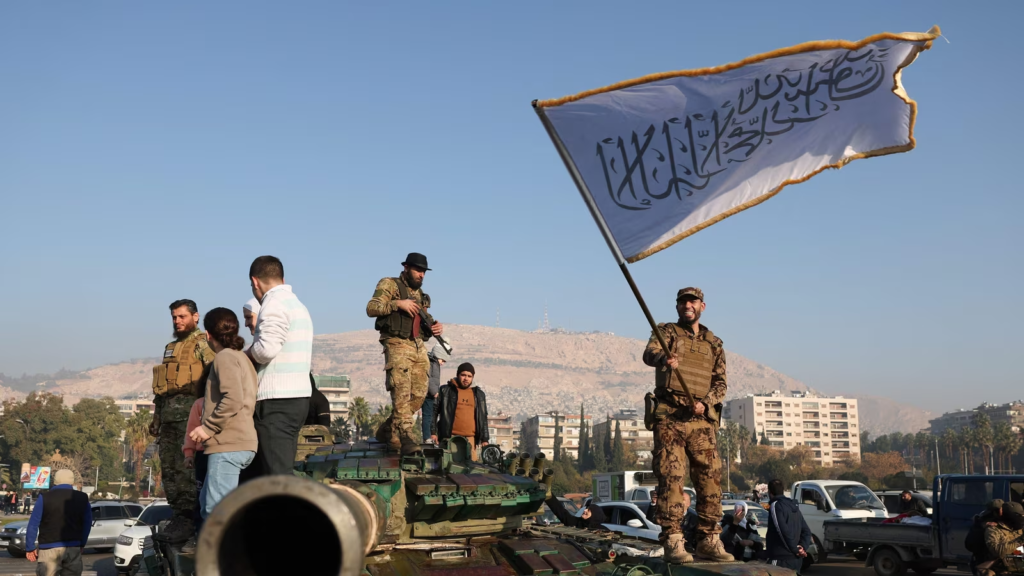In a significant development, Syrian rebels have announced a shift in their stance toward personal freedoms, particularly emphasizing that they will not impose a dress code on women. This decision underscores a growing commitment to personal liberties and societal inclusivity in areas under rebel control.
A Commitment to Personal Freedom
The statement released by Syrian opposition groups highlights their dedication to guaranteeing personal freedom for all Syrians. Respect for individual rights is described as a cornerstone for building a civilized nation, marking a stark contrast to the authoritarian restrictions previously prevalent in the country.
Historically, in rebel-dominated areas following the civil war that began in 2011, women adhered to modest dress norms, often covering their faces and hands.
However, this new declaration suggests a significant departure from imposing such cultural or religious expectations. The announcement has been met with cautious optimism, reflecting a potential move toward greater inclusivity and respect for diverse lifestyles.
Read : Syrian prisoners celebrate freedom in Damascus after rebels liberate Assad’s infamous prisons
Abu Mohammed al-Golani, a key figure among the rebels, has positioned himself as a proponent of tolerance and diversity. Al-Golani, who once led a faction deeply tied to al-Qaida, has severed these connections and now advocates for a more progressive vision for Syria.
Read : Syria Resumes Saudi Flights After 12 Years of Suspension
His leadership appears to be steering the opposition toward policies that promote personal freedoms, including gender equality.
A Nation Scarred by Conflict
The civil war that erupted in Syria in 2011 has left the nation deeply scarred. Triggered by President Bashar al-Assad’s violent suppression of calls for democratic reforms, the conflict has claimed over 500,000 lives and displaced millions. Entire communities have been uprooted, with countless Syrians forced to flee their homeland in search of safety.

The war also saw the rise of militant factions with Islamist agendas, which significantly influenced societal norms in areas under their control. Women’s dress codes became a symbol of these groups’ authority, often reflecting their strict interpretations of religious guidelines. The new announcement by Syrian rebels marks a potential shift away from such practices, emphasizing respect for individual choices instead.
This change comes at a critical juncture in Syria’s history. With Assad’s regime ousted from large parts of the country and the capital city infiltrated by rebel forces, the power dynamics have shifted dramatically.
The emphasis on personal freedoms signals an effort to rebuild the nation on a foundation of mutual respect and inclusivity, contrasting with the repression that defined Assad’s rule.
The Road Ahead for Women’s Rights
The decision not to impose a dress code on women represents a significant step forward for gender equality in Syria. However, it also raises questions about the practical implementation of this policy and its acceptance within conservative communities.
For decades, Syrian society has grappled with the intersection of tradition, religion, and modernity. Women’s rights have often been at the center of this struggle, with their freedoms varying widely depending on regional and political contexts.
The rebels’ announcement could pave the way for broader discussions about women’s roles in public life, their access to education and employment, and their participation in governance.

While the policy has been lauded as a progressive move, challenges remain. Deeply ingrained cultural norms and years of conflict have created a complex environment where change is difficult to achieve. Ensuring that the policy is implemented fairly and without coercion will be crucial for its success.
Moreover, the international community has a role to play in supporting these efforts. By providing resources and advocating for human rights, global actors can help create an environment where Syrian women can exercise their freedoms without fear of retribution.
The Syrian rebels’ decision to not impose a dress code on women is a powerful statement of their commitment to personal freedoms and societal progress. As the nation continues to rebuild from the devastation of war, such policies offer a glimmer of hope for a more inclusive and equitable future.
This shift in stance is not just about clothing; it is a broader acknowledgment of the need to respect individual rights and foster a culture of tolerance. While challenges remain, the announcement marks an important step toward redefining societal norms in post-conflict Syria.

